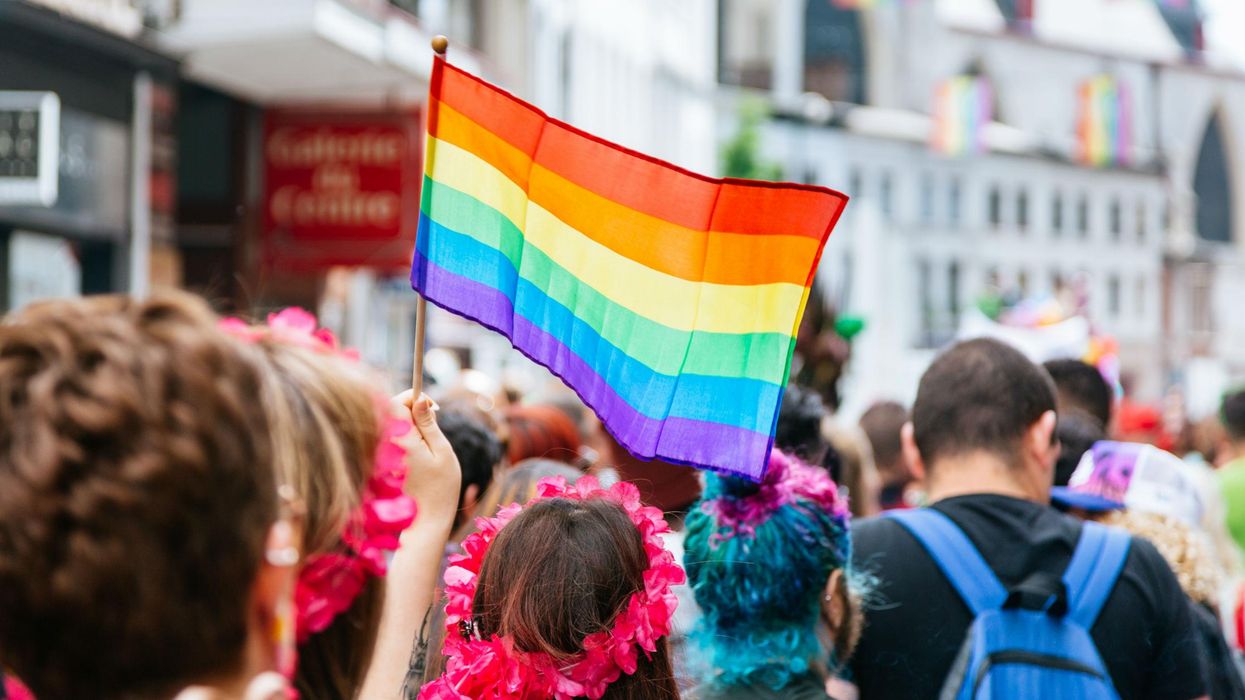News
Lowenna Waters
Jul 06, 2018

Picture:
Andrey Danilovich / iStock Getty
There are no two ways about it – Pride is an essential time in the LGBT+ annual calendar, giving the gay community the chance to stand against discrimination, promote self-affirmation, and move with dignity towards equal rights.
However, the sad reality is that homophobia can cast a shadow over this time of celebration, love and pride in being yourself.
LGBT+ charity Stonewall have release shocking statistics that show that homophobia is still alive and well in the United Kingdom.
In 2016, research proved that one in five LGBT+ people have suffered a hate crime in the last 12 months and two in five trans people have suffered a hate crime in the same time period.
Further to these figures, Stonewall found that four in five anti-LGBT+ hate crimes still go unreported, so the actual extent of the matter is even greater than the figures would suggest.
With these worrying statistics in mind, we've spoken to three experts to give you advice on how to enjoy Pride in the way it should be - as a celebration.
Robbie de Santos, head of campaigns at Stonewall.
De Santos was keen to hammer home that sadly, homophobia is still an issue for the LGBT+ community:
In a recent government survey of more than 100,000 LGBT+ people, two thirds of all respondents (68%) said they avoided holding hands with a same-sex partner in public for fear of negative reactions.
We also know from our own research that a third of trans people (34 per cent) having been discriminated against because of their gender identity when visiting a café, restaurant, bar or nightclub in the last year.
Although Pride season is a highlight of the LGBT+ calendar and a crucial opportunity to celebrate the progress we've made, safety is still a very real concern for lesbian, gay, bi and trans people.
He also emphasised the importance of reporting crimes if you're a victim:
Stonewall works with police services across Britain to ensure LGBT+ people feel more comfortable reporting abuse.
We’re also calling for a review of the law so that crimes based on sexual orientation, gender identity or disability are treated equally to those based on race and faith.
It’s really important that hate crimes are reported, you can do this by dialling 101 to contact your local police force, or by reporting the crime anonymously through the police website True Vision.
If you don’t feel comfortable reporting abuse, organisations such as Galop can provide help and support
James Huyton, Community Safety Officer at LGBT Foundation.
Huyton is keen to emphasise that people must remember to have fun, but also let people know where you're going to be!
Pride is a time to celebrate our communities, be proud of who we are and for many to be open in public. However, it’s important to remain vigilant and take steps to minimise any risks.’
If you are going out, try to go out in groups or if you are venturing out alone remember to tell a close friend or family member where you are going and make sure you have their numbers saved in your favourite contacts. Always trust your instincts!
Wherever you are, if you are feeling uncomfortable and unsafe, get yourself out of the situation as soon as possible. If things escalate then try to alert whoever is around you and if possible call the police or security at venue. If you do experience discrimination or a hate incident, always try to report it if you feel able to.
Also, let loose and enjoy the party, but, pace yourself, be aware, and be sensible.
For many, a few drinks will be a part of Pride. Have fun but try to pace your drinks, and don’t leave your drink unattended.
The safest way to take drugs is to not take them at all. Many drugs found on the streets can contain vastly different strengths and substances to what is advertised. But if you are planning on taking drugs it’s important to take necessary precautions, like knowing what you’re taking, and letting the people you’re with know, so that if anything does go wrong your friends are able to tell medical staff what you’ve consumed so that they can treat you as soon as possible.
We’re also expecting hot weather, so carry and regularly apply sun cream and stay hydrated by drinking plenty of water.
Also practice safe, responsible sex.
It may be Pride, but apply the same safety precautions if you’re planning on hooking up using apps.
For example, tell a friend if you are going on a date, say where you are going, and if you leave with the person for their house or yours. You may want to ask a friend to call or text you during the date to check in to see everything is going OK.
In addition, if you do meet someone and decide to have sex, do you have everything you need with you to play safely? Are you aware of how to access and take PrEP? Carry condoms and lube with you, and negotiate the kind of sex you’re happy with before you play.
Peter Tatchell, director of the Peter Tatchell Foundation.
Stay together, but most importantly, don't let anti-gay bigots ruin your fun!
LGBT+ Pride offers safety in numbers, so the likelihood of a homophobic incident is much less than on a typical day.
But on the way home by yourself, or with a small group of friends, be alert and careful. Anti-gay bigots are cowards.
They tend to only target lone individuals or couples. If you suffer or see homophobia, call the the police and support the victims.
Don't let the possibility of an anti-LGBT+ attack spoil your day. The chances of violence or abuse at Pride is quite small
More: Gay and lesbian couples explain why they don't hold hands in public
More: A 'safe space' for LGBT+ football fans was shut down on eve of World Cup in Russia
Top 100
The Conversation (0)













